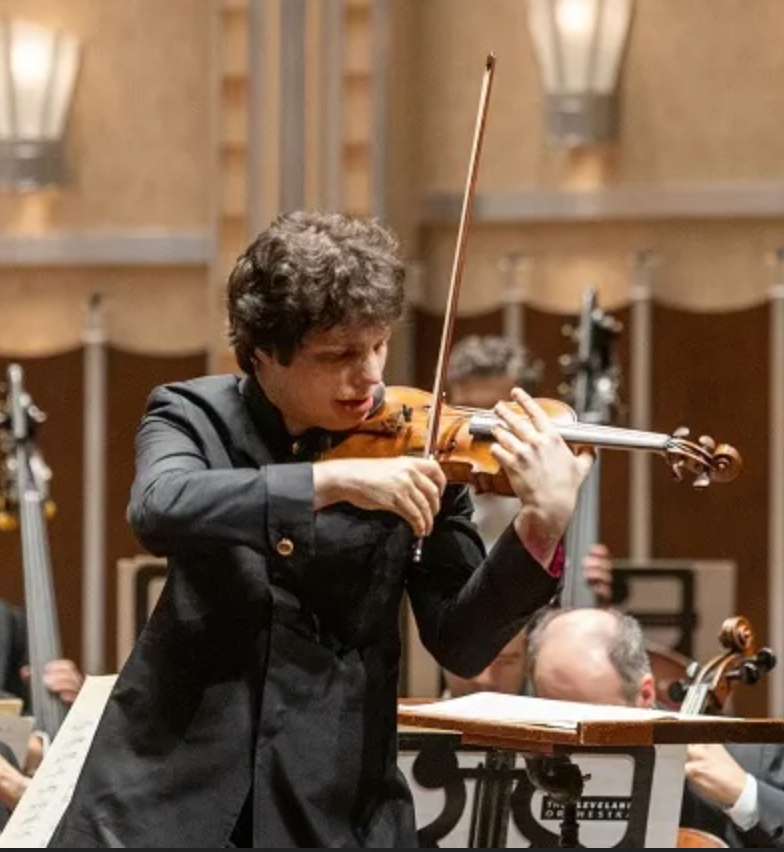by Daniel Hathaway
Originally published on Cleveland.com. Photo by Roger Mastroianni from an earlier Cleveland Orchestra concert

Those Fridays in particular have seen some memorable performances, and the concert on November 24 was no exception. Played to a capacity, multi-generational crowd enlivened by an enthusiastic influx of families and young listeners, led by the insightful Finnish conductor Pietari Inkinen making his debut with the orchestra, and featuring a defining performance of a beloved concerto by one of the most thrilling violin soloists on the international circuit, the experience was simply overwhelming.
From the ovation they gave when Augustin Hadelich merely appeared onstage, Friday’s audience suggested that he was a major factor that drew them to Severance Music Center. Ever since he stepped in on three days’ notice for Renaud Capuçon with the Sibelius concerto at Blossom in 2014, the German American violinist has been a favorite with Cleveland audiences.
He cemented that reputation with his take on the Tchaikovsky concerto on Friday, suggesting that a perfect performance had been achieved once and for all. It would be impossible to imagine a better one.
Both Hadelich and the Orchestra visited a thousand nuances in 35 minutes, painting each section from an expanded tone palette and exploring subtle differences in color, articulation, and dynamics.
Tchaikovsky shamelessly suggested that applause would be in order with his bravura ending to the first movement, and the audience didn’t hesitate — some even rose to their feet. Hadelich gracefully nodded in response to what should probably be regarded as historical performance practice for a 19th-century concerto.
Hadelich’s gripping, second-movement opera aria led to a fiery finale with an edge-of-your-seats tempo.
After a strong ovation and several call-backs, Augustin Hadelich gave the audience a bonus piece: his own, fun arrangement of Wild Fiddler’s Rag.
Friday’s concert began and ended with Dvořák. Rather than being the prelude to a larger work, is Othello Overture is one of three brief, stand-alone pieces that the composer crafted in the last decade of the 19th century, and rather than referring to events in the well-known tragedy depicted by both Shakespeare and Verdi, Dvořák said he intended to symbolize love and jealousy as general concepts.
The piece, which introduced a concert that was all about tunefulness, made a beautiful opener, featuring the Orchestra’s wind section in a variety of sonorous blends.
At the other end of the evening, Dvořák’s Eighth Symphony, often played for its surface delights, received a penetrating reading with a distinct Czech flavor. Inkinen rushed nothing and relished everything — including often-overlooked inner voices — from the spectacular opening trumpet fanfare to the final exuberant tutti. The winds produced a lovely, full-bodied sound and stunning rounded pianissimos, and adding to their distinguished ensemble work, flutist Jessica Sindell, oboist Frank Rosenwein, and clarinetist Afendi Yusuf contributed notable solos.
This certainly wasn’t your run-of-the-mill Dvořák Eighth, and the audience erupted in a not-your-usual standing ovation, whooping and cheering as Inkinen gave well-deserved stand ups to soloists and sections.



